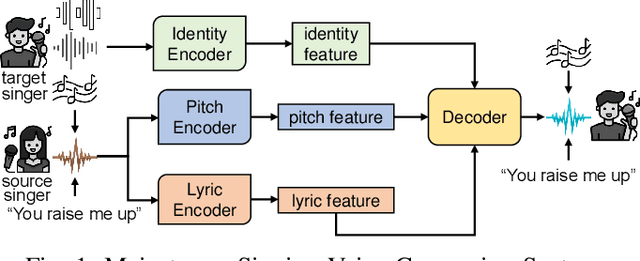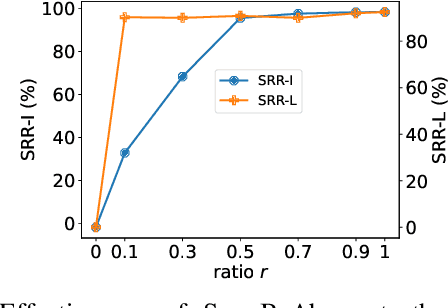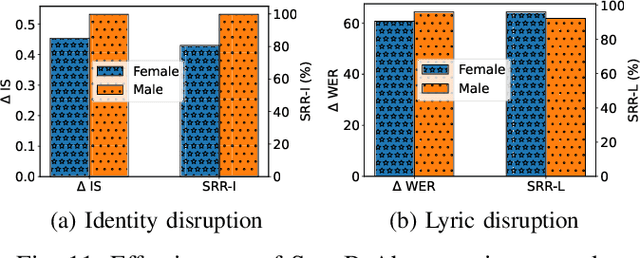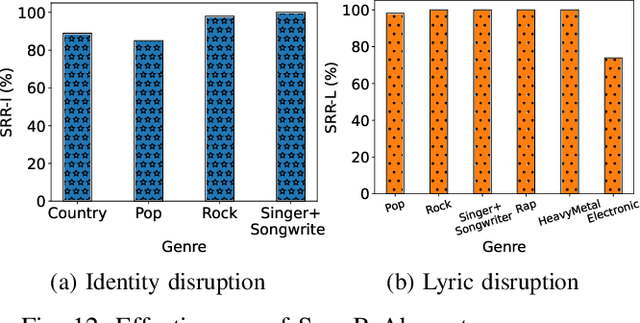A Proactive and Dual Prevention Mechanism against Illegal Song Covers empowered by Singing Voice Conversion
Paper and Code
Jan 30, 2024



Singing voice conversion (SVC) automates song covers by converting one singer's singing voice into another target singer's singing voice with the original lyrics and melody. However, it raises serious concerns about copyright and civil right infringements to multiple entities. This work proposes SongBsAb, the first proactive approach to mitigate unauthorized SVC-based illegal song covers. SongBsAb introduces human-imperceptible perturbations to singing voices before releasing them, so that when they are used, the generation process of SVC will be interfered, resulting in unexpected singing voices. SongBsAb features a dual prevention effect by causing both (singer) identity disruption and lyric disruption, namely, the SVC-covered singing voice neither imitates the target singer nor preserves the original lyrics. To improve the imperceptibility of perturbations, we refine a psychoacoustic model-based loss with the backing track as an additional masker, a unique accompanying element for singing voices compared to ordinary speech voices. To enhance the transferability, we propose to utilize a frame-level interaction reduction-based loss. We demonstrate the prevention effectiveness, utility, and robustness of SongBsAb on three SVC models and two datasets using both objective and human study-based subjective metrics. Our work fosters an emerging research direction for mitigating illegal automated song covers.
 Add to Chrome
Add to Chrome Add to Firefox
Add to Firefox Add to Edge
Add to Edge